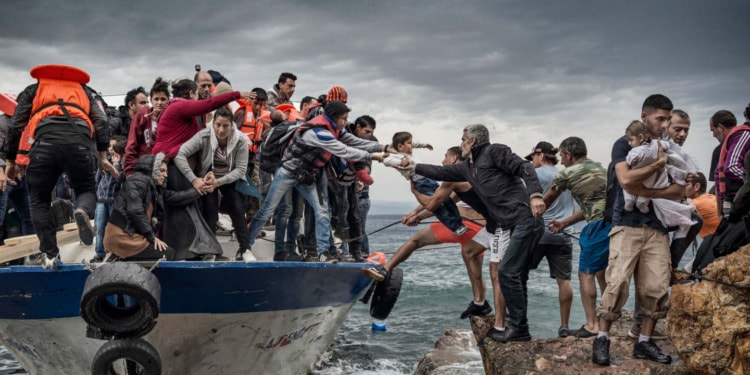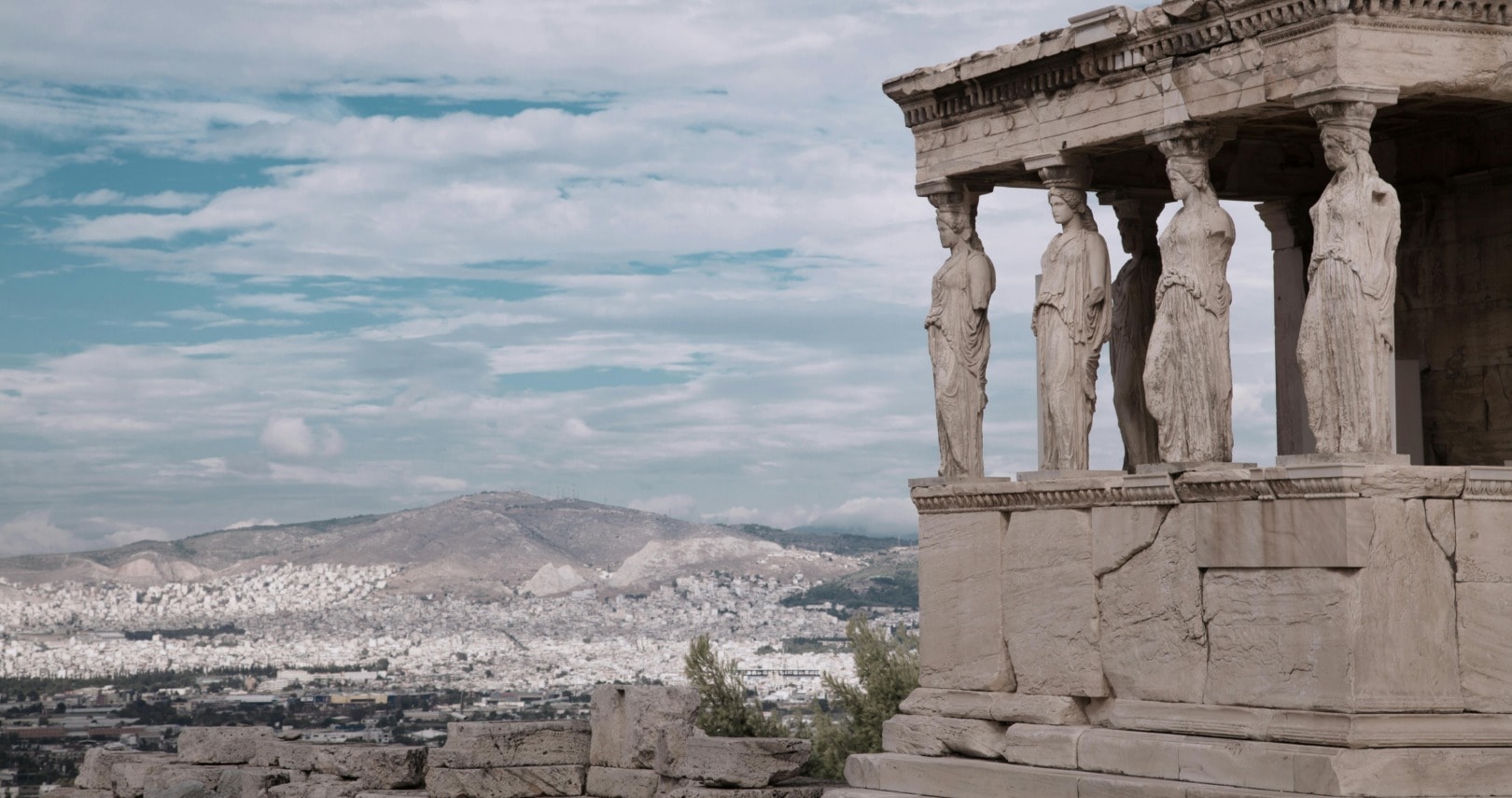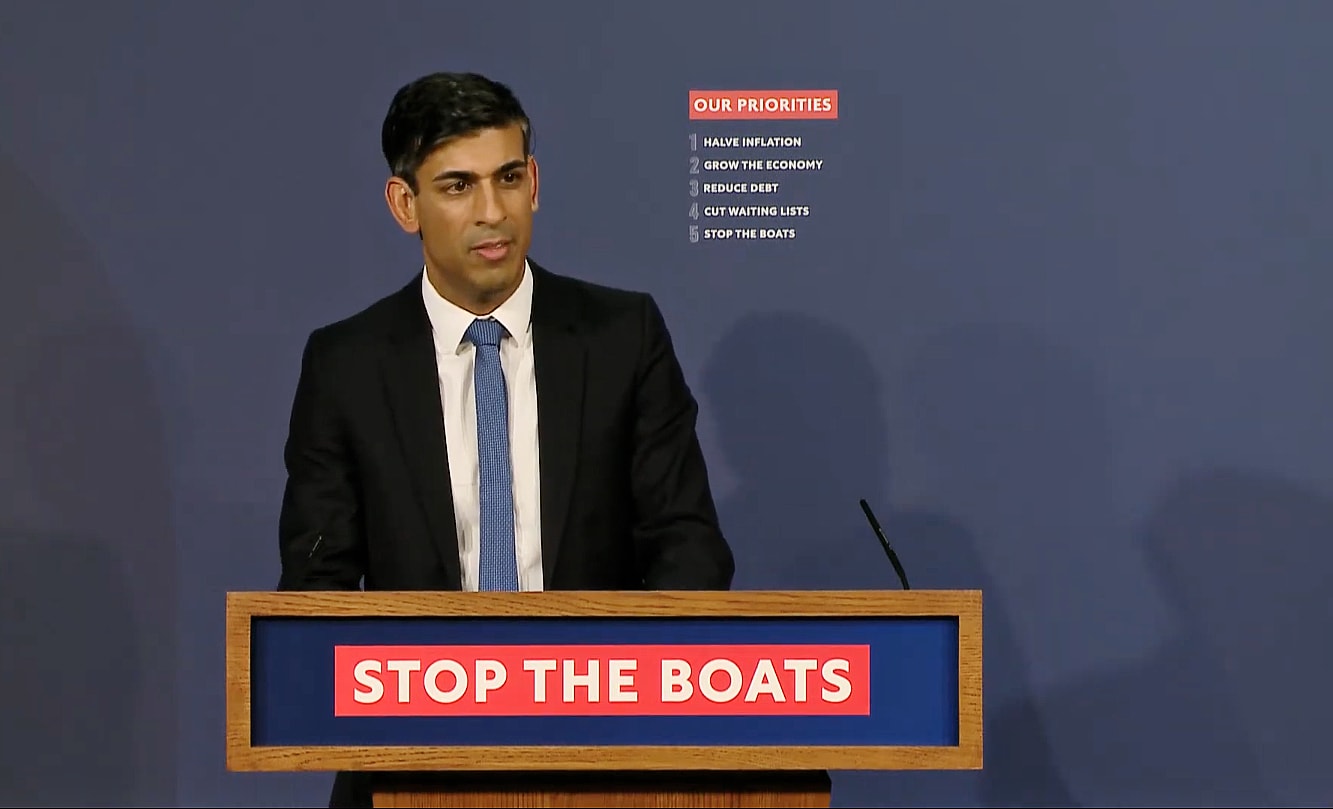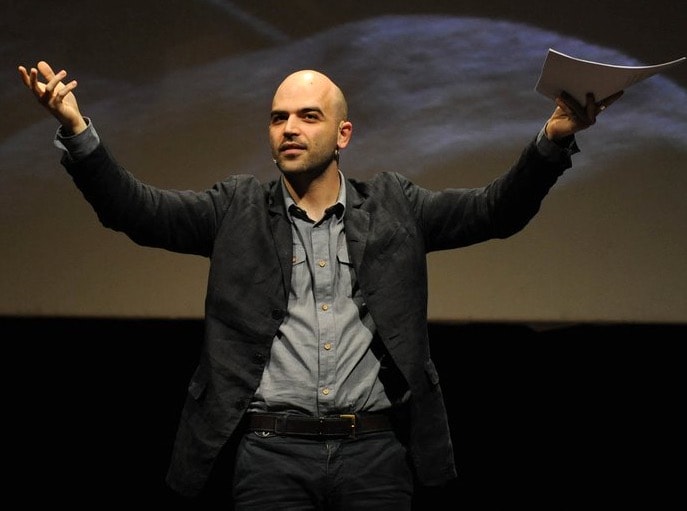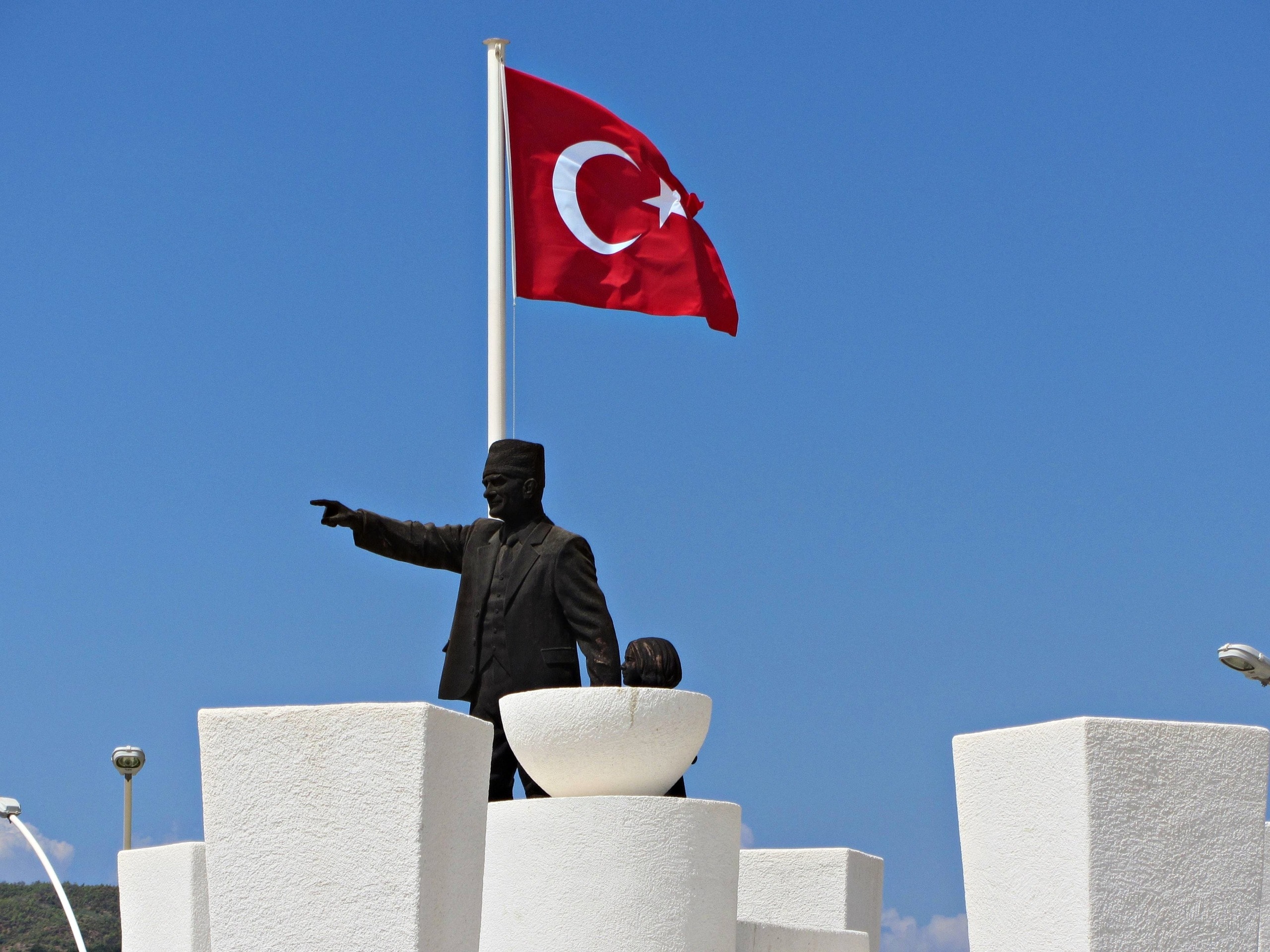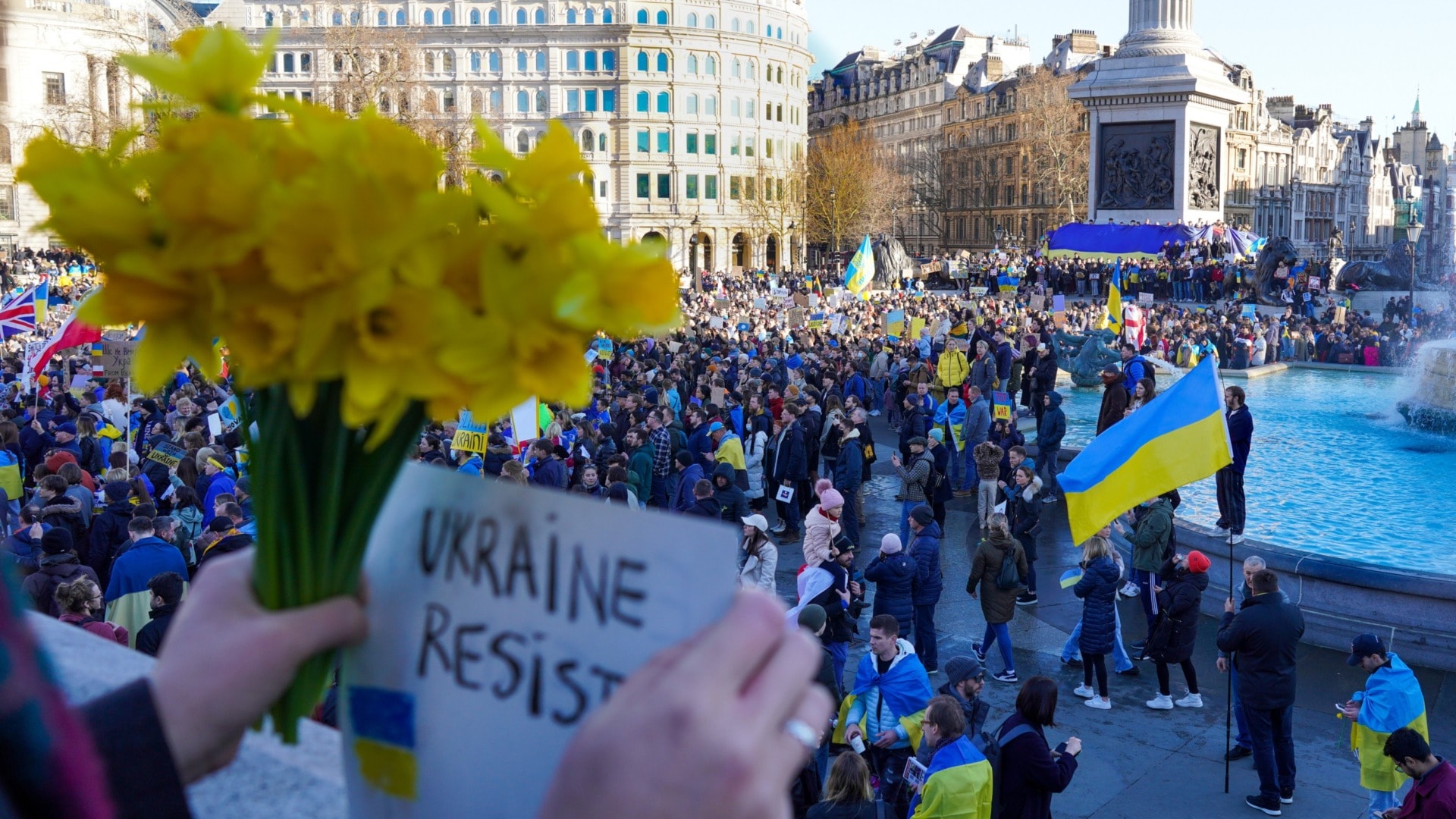The recent discovery of a boat wreckage off the coast of Lebanon marks yet another tragedy in the European migrant and refugee crisis. On this boat the bodies of around 40 Lebanese and Syrian migrants, largely women and children, have been found.
It is reported that when the boat sank on April 24 these 40 people were trapped within the vessel, believed to be transporting over 85, and drowned.
This horrific finding once again calls attention to the plight that refugees endure in their attempts to find safety.
When it comes to what more can be done to assuage this crisis, heads are turning towards Greece and Prime Minister Kyriakos Mitsotakis’ government.
Greece has previously played a key role in European efforts to provide either permanent or temporary shelter to refugees.
In fact, between January 2015 and August 2016 over one million people seeking international protection entered Greece through Turkey in hopes of either finding asylum there, or continuing their trip to northern Europe.
However, following the election of Kyriakos Mitsotakis in July 2019, attitudes towards migrants have hardened and many now face violence at the country’s borders.
This comes down to the fact that although Mitsotakis cast himself as a liberal reformer pre-election, since he came to power he has made the country’s policies regarding migrants and refugees far harsher.
Within the last two years, thousands of refugees have been intercepted on their passage into Greece. It is reported that those who have passed through the country’s land borders are forced back, and others who have made the dangerous voyage by sea are towed into the open water and abandoned on unsafe boats.
The brutality of these pushbacks is made particularly evident in the recent report that officials refused to provide any help to a five-year-old girl who died of a scorpion sting on an islet that, whilst charted on maps as part of Greece, was claimed by Greek officials to in fact be Turkey’s responsibility.
The parents of a 5-year-old Syrian girl who had allegedly died of a scorpion sting while they were stranded on an islet in the Evros river along the Greek-Turkish border, testified in a Greek court Monday.
"We want justice for our daughter," they said.https://t.co/4K0a32rhwn
— InfoMigrants (@InfoMigrants) August 24, 2022
Mitsotakis’ leadership is receiving the blame
The Greek Prime Minister is said to have turned a blind eye to the illegal pushbacks actioned by Greek civil servants, particularly in cases where the illicit behaviour took place on the country’s borders.
Related articles: Tragedy in the Channel: Migrants Drown Trying to Make the Crossing | “Plain Wrong and Racist”: Britain’s New Migration Plans
Whilst some reports credit Mitsotakis with the improvements made to the country’s economy during his time in power, others are concerned that he is anti-democratic and bringing the country ever closer to autocracy.
These concerns stem partially from the control that Mitsotakis and his government have taken over the public sources of information.
According to a Reuters survey, this is common knowledge: only around 7% of Greeks believe the media in their country is free from “undue political influence.”
EU border agents aided at least 957 refugee pushbacks by Greece in 2020-2021, an investigation led by @LHreports found.
At least 22 were abandoned at sea.
Groups accuse the EU of being complicit in pushbacks of Syrian and Afghan refugees, while welcoming 2.3 million Ukrainians. pic.twitter.com/DejFc8gNIG
— AJ+ (@ajplus) April 28, 2022
It may be said that the intolerance being demonstrated towards migrants and refugees currently can be traced back to the huge influx in 2015 and the stress that this placed on the country’s social and security capacities. There are, perhaps, fears that this will be repeated.
However, the attitude displayed towards recent Ukrainian migrants makes it appear that it is prejudice, not concern, that has provoked these recent pushbacks.
As Kleio Nikolopoulou, a lawyer for the Greek Council for Refugees, states, Ukrainians have been granted an “astonishingly positive” reception.
These “real refugees,” as Migration Minister Notis Mitarachi referred to them, were able to enter Greece without a visa and were quickly provided with protection status in addition to social security and tax numbers. They were consequently able to access the labour market and receive healthcare only a short while after entering the country.
The experiences of racialised refugees from countries like Syria, Iran, and Afghanistan are very different. These people have long been struggling to access essential services in Greece having not been provided with the same platforms and procedures as Ukrainians were.
2. CBS News
"This isn't Iraq or Afghanistan…This is a relatively civilized, relatively European city" – CBS foreign correspondent Charlie D’Agata pic.twitter.com/s7sxZrMzM9
— Alan MacLeod (@AlanRMacLeod) February 27, 2022
This double standard in refugee treatment appears to be widespread, with many other European governments and media outlets found to be equally guilty.
Charlie D’Agata, a CBS foreign correspondent, described Kyiv as a “relatively civilized, relatively European city” and emphasised it “isn’t Iraq or Afghanistan.”
NBC’s correspondent Kelly Cobiella made a similar comment when asked why Poland is less hesitant to take in Ukrainian refugees than it was to accept those seeking asylum in 2015. She stated, “these are not refugees from Syria (…) these are Christians, they are white, they’re very similar to people that live in Poland.”
In fact, in 2021 Poland moved from being ranked 101st globally in the number of refugees it hosted to 2nd in the span of just three weeks. Ukrainians were welcomed into people’s homes when only 6 months earlier the country had erected a border fence to prevent Kurds and Afghans from entering.
NBC news correspondent: "These are not refugees from Syria […] These are Christians, they are white" pic.twitter.com/GQ3khKHwRR
— In Context (@incontextmedia) March 5, 2022
Studies have shown that people generally empathise more with those that look like them. It has also been asserted that crises that have impacted fewer people stimulate more empathy than those that have affected the masses because of “psychic numbing.” This phenomenon takes place when the numbers of people suffering are too large for us to comprehend and so result in a sense of apathy.
These aspects of our psychology become highly problematic when they are allowed to impact policy and endanger innocent lives as appears to have been the case in Greece.
In response to these reports of illegal pushbacks and steps towards authoritarianism, the European Commission is being called upon to take action and initiate infringement procedures against Greece.
There will also be an election held next year which many hope will be used to oust Mitsotakis’ government and steer the country onto a more democratic and just path.
Editor’s Note: The opinions expressed here by the authors are their own, not those of Impakter.com — In the Featured Photo: Refugees and migrants reach the coast of the Island of Lesbos (Greece). Featured Photo Credit: Jim Forest.


